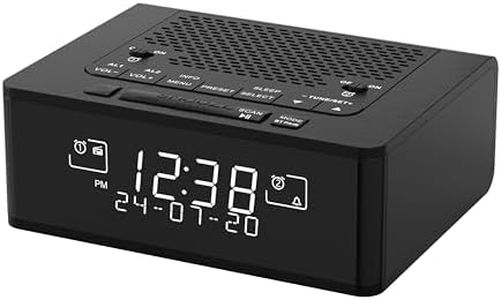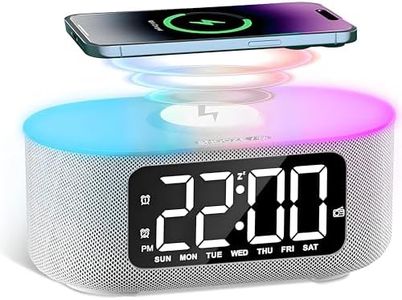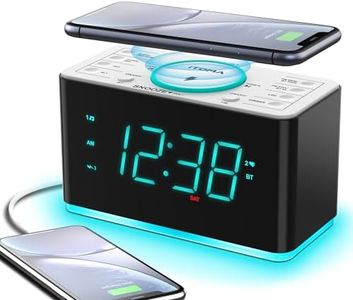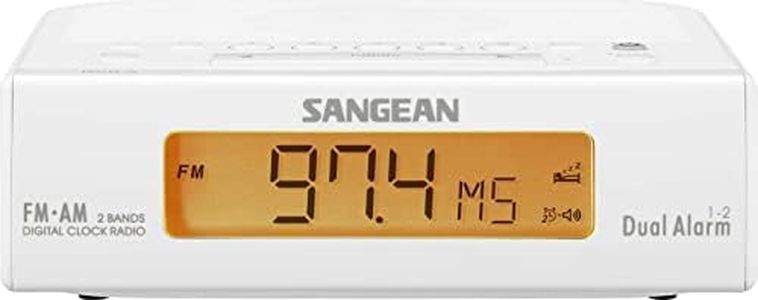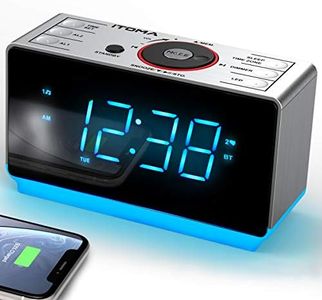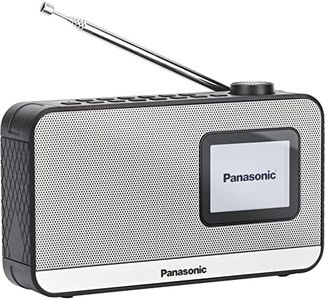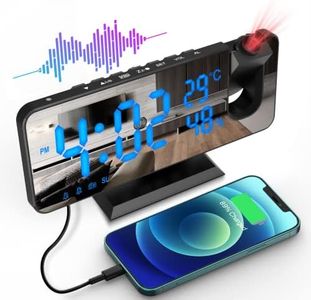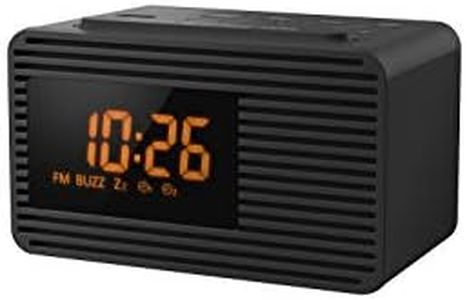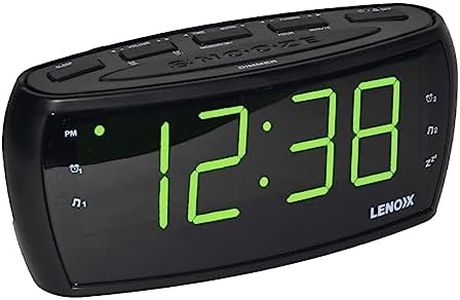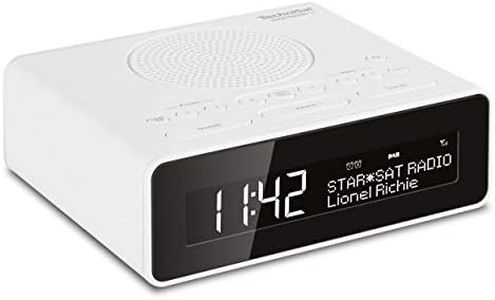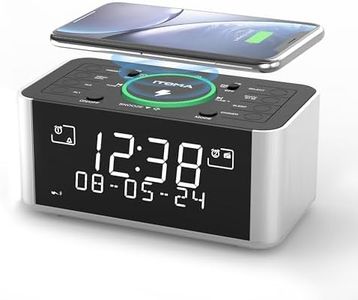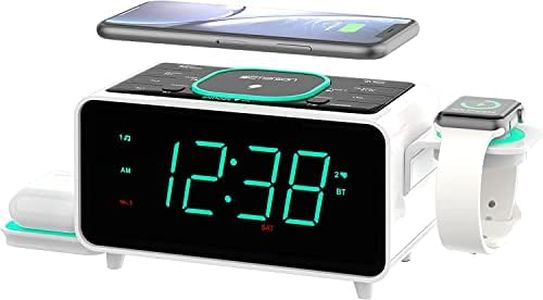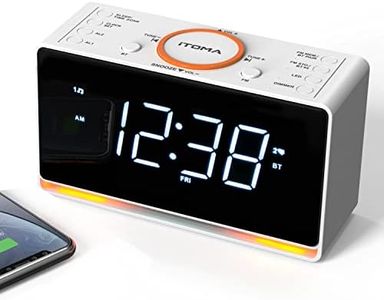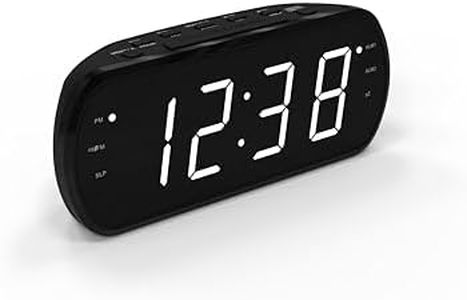We Use CookiesWe use cookies to enhance the security, performance,
functionality and for analytical and promotional activities. By continuing to browse this site you
are agreeing to our privacy policy
10 Best Clock Radios
From leading brands and best sellers available on the web.By clicking on a link to a third party's website, log data is shared with that third party.
Buying Guide for the Best Clock Radios
When choosing a clock radio, it's important to match the features and design with your lifestyle and preferences. Consider where and how you'll use it—by your bed, in the kitchen, or elsewhere—because your needs for sound quality, display visibility, and extra features may change depending on the setting. Think about what will make waking up or checking the time most convenient and pleasant for you, and don't forget to choose something you find easy to set up and operate.Display Type and BrightnessThe display shows the time and sometimes other information, and can be a simple LCD, LED, or digital panel. A clear and easily readable display is crucial for checking the time quickly, especially at night or from across the room. Some displays can be too bright in a dark room, so look for adjustable brightness or a dimmer if sensitivity to light is a concern. For a bedside clock, a dimmable display or an option to turn off the light completely can improve your sleep environment, while for common areas, brighter displays may be more suitable.
Alarm FeaturesAlarm settings go beyond merely setting a wake-up time. Many clock radios offer multiple alarm settings, gradual volume increase, snooze buttons, and different alarm tones or sounds. Some may let you choose between buzzer, radio, or natural sounds to wake you up. If you share the clock radio or have varying schedules, dual alarm functions are useful. If you're a heavy sleeper, louder and persistent alarms or vibration options may be essential, while light sleepers may prefer gentle, progressive alarms.
Radio FunctionalitySince it's a clock radio, the ability to tune into radio stations is a key feature. Radios can cover FM and sometimes AM bands, and may offer digital tuning, presets for favorite stations, and better reception options. If you like waking up to specific stations or enjoy listening throughout the day, seek a model with strong reception and clear sound, and presets for quick access. Casual users may be fine with manual tuning and basic reception, while radio enthusiasts should look for more advanced radio features.
Sound Quality and VolumeSound quality relates to how clear and pleasant the audio is from the radio or alarm. Some clock radios have basic speakers mainly suited for alarms, while others provide richer audio suitable for daily radio listening. If you want to listen to music regularly, opt for a model with better speakers and adjustable volume. If it’s mostly for alarms and occasional radio, basic sound may do. Consider also whether you might disturb others and need a lower volume or headphone option.
Power Backup and BatteryA power backup or battery feature ensures that your clock radio keeps working during power outages, so your time and alarm settings aren’t lost. Some models use built-in rechargeable batteries, while others take disposable batteries for backup. For anyone relying on the alarm to wake up for work or important events, a power backup is essential. If you live in an area with frequent outages or have an unreliable power supply, prioritize this feature.
Ease of Use and ControlsThis refers to how simple it is to set the time, alarm, and radio, and how intuitive the buttons and controls are. Complicated controls can be frustrating, especially early in the morning. Look for clear labels, obvious snooze buttons, and a straightforward setup process, especially if you're not very tech-savvy or want something you can operate without reading a manual every time. If you enjoy tinkering with many features, complex controls may be fine—if not, simplicity is best.
Additional FeaturesSome clock radios come with extras like USB charging ports, Bluetooth connectivity, ambient lighting, temperature display, or built-in white noise makers. These can add convenience; for example, USB ports let you charge devices by your bed, while Bluetooth can stream music from your phone. Think about which, if any, of these would fit your routine, like needing a nightlight, charging devices, or using your own music as an alarm. Avoid extras you won’t use to keep things simple.
